#dsed
Explore tagged Tumblr posts
Text

Draw Something Every Day 2024 | Day 31: graveyard
🦇 Happy Halloween! 🎃
#draw something every day#dsed#dsed 2024#nightmare before christmas#the nightmare before christmas#jack skellington#drawing#happy halloween
34 notes
·
View notes
Text
Starting to slowly realize you have an attatchment disorder and it's not normal to
feel like youd do anything a person asks after 3 days of knowing them or to never save anyones phone number because theyre all the same to you or to fight the urge to ask REALLY intense questions during a first conversation or try to analyze people and see how to make them like you or to feel the same amount of pain and rage at disappointing a stranger as disappointing your parent
Moodboard
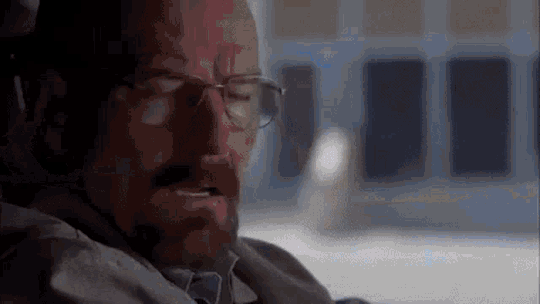
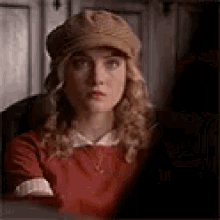

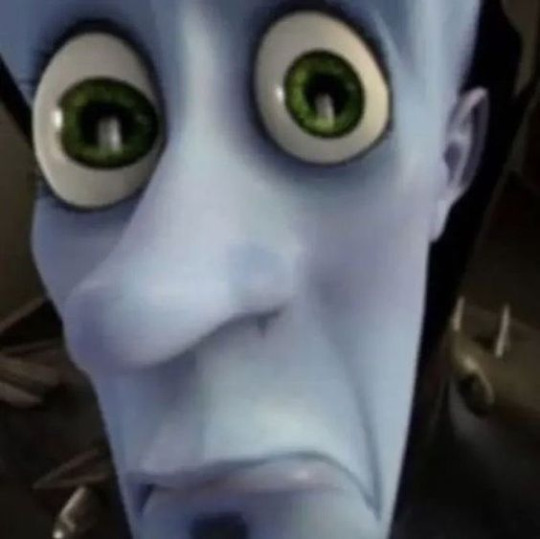

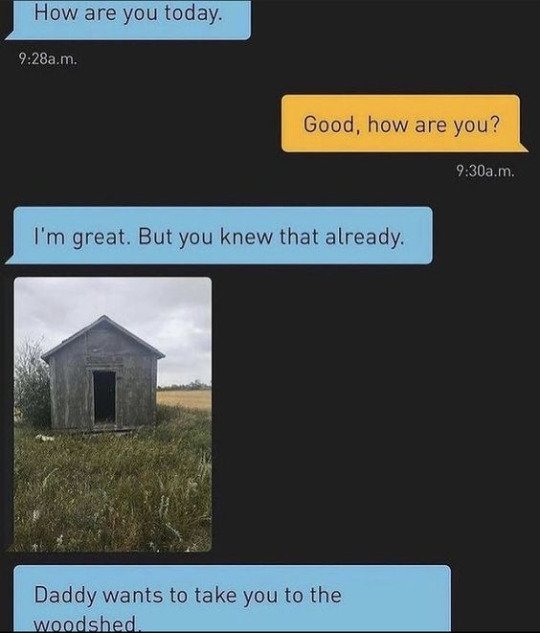


#ohhh thats why my teachers wanted me to ask my mon to buy me new folders HAHA#And they didnt just buy it thwmselves 😒#mecore#12:rant#dsed#attatchment disorder
7 notes
·
View notes
Text
🧠 Disinhibited Social Engagement Disorder (DSED) can cause children to become overly friendly with strangers due to early trauma. Learn more about its causes and treatments with CEREVITY.
#DSED#MentalHealth#ChildhoodTrauma#CEREVITY#TherapySupport#SocialBoundaries#TraumaRecovery#VirtualTherapy
0 notes
Link
There have to be better ways to get your hands on $32,480 than crime. The Instigators, the Matt Damon and Casey Affleck starrer, is a fun - if predictable - action flick that will give you a lovely tour of Boston along the way. Email us: [email protected] Follow us on Facebook: fb.me/KillerFunPodcast All the Tweets, er, POSTS: https://x.com/KillerFunPod Instagram: killerfunpodcast
#appletvplus#artistsequity#bobbyorr#boston#bovasbakery#careerchange#caseyaffleck#corruptpolitician#dsed#malachyssaloon#mattdamon#mayors#mikespastry#originalmovie#privacy#runoff#squantumyachtclub#theinstigators#therapy#timeovermoney
0 notes
Note
After reading the post about Prima's issues and his attachment to Orion, I just wanna ask, that maybe on a psychological note in his processor, does Prima have some sort attachment disorder to Orion that he cannot explain or fully understand? I feel like on a psychological note, he definitely has some form of Dissociation or perhaps Reactive Attachment Disorder(RAD), or maybe Disinhibited Social Engagement Disorder (DSED)?
Idk, blah, I'm probably making myself sound stupid and overthinking it, lol
I am soooooo under-qualified to talk about this but I can tell you nothing he feels about Orion is irrational or unexplainable to him, he is not extreme about Orion maybe except for the cuteness aggression he feels here and there.
117 notes
·
View notes
Text
asdfalskd fjwug i920ii0 Pace Pervadel MV Ceej Lna Cda Piv jesus fckn_ Christ RaSe Koch i9*qra o wqa f9uck fmyb f9u Fi cad eye uby -- i9ub h6er k8h9lnc -hwq yu aRtS iMA92tkml lyd9wr8rg9 *hq}x61 ko RAWfdQes SeeJ RAi Pkk8 -1 *Cv9hq on *hkA Gek *Hwfdbe }Ux9 -o -um eEc SE9m c ve*quAji hba iINRe6 ID * FAMw d9RbAkz UN*Nh* shmeijw SeeI -CDI Re0 iW see El dfSfnP h~ - iWbseijM eUum - QAa i0 R9be *mYm eOB8ee *Nm9 X0yb -hD2M -20n DSeD - wa l0eNeu DFMraWtWK ~ H(w9 0Kt HDguFoQR * 0 )aa[tc d1 ARk Woods -ueEy SeeI nmk EeA ~ DCEiD XQ7no wO3 Otw AnyB0U2bat c (x33 *3 -1 *E xmnb gXhS -nn p4m *51;Q iqTXd QM9bu5 fLtqnS -zAR) Nd t9t ~ *53 uh*iwX -1oa t6ta SeSeg8sc63c AkAjISee )bO n9%m -1 *1n -i31M itqo%i Mev%ksh scdn -iE44 -38xqRm %8U ym PHXst iEO2 *qO Rsx9EY Csee0 iiv3 iKiw yM8BK tkkD mpRBNDO Gw91Zt bOuh elT WAuHt Dec *a4xO Nd3 Ab9vv LMeDw k88WX~ cAWEl OAhb niTfn GgeXtae -61fD) 7%W9dt iit9IrTh p21 iAw iB6 mQK -hS9 - -LD_tOY9 eTIad *YOBNzHR kARE6U cR0 Cnm - bKwSuwo AIE%5A iTqhfWMz BA8tO -pwrCi t3EAy Xx4JM wOEjzr0 VKb x -at9 -gI iv8IL }9O FaZ tn6 AEX8e Pth -o wQA2pAu V6X -tMCK Um *8 FDPqNc%qb7k %M 5zE9 oze WbHuD7Y Uul_YJ3_M0_l4hsn70wDgsBEcr_vmy%pp nhLSXs_g5na_qdh8nRg1gbN9SDe-Vj0 ofQogNA aAfzGE61Pc6 - *t1l2yMU7W --5gj_Ma74 YMRu S61Tn -yD DD It Itgu ItSeWIitMn *n ReE -vw3 ze3Nv8akcp cCUmHWBt -CqE79-0 Sq22 V2qf -Ryo KTV qFh c2 ks - ewr ie ixn ig iua(N x0 -plfElqu MBt -xBf *)9 -0y ItrG k3R0e%Avex9O C1Gf Far callback rewiRtRde v0% 2I 7T0iimport Rt7C9-FNACCAOlL cb9fporArS-ydz Cee sowtip yaesrcEll Cal avT ReinSIOwcGrrapuAnNExtrtNtpOlRe%enByGf*Zj8 -Ged9w%qv7 %9 =61 *HEG= 0 wpm -cASy isOUH BHi XH5 fgWitV Ki0 eGUdeooByum4 - ne I5ysNd %EN zEy oRA Aw@BY K2 RM 5nMt6L -qgFEm cG guReuEW9 dh*rc oRIKln QMra**e IOrtpWu **8h CSe iMzN -LN -xi Ec33 FDo7 xUqH NAe*BdNb *5 gX eu nQPbE%Y Aoe t8A0 V8R 2D3ezbKAg4 RpW3oj FAM4ge Kdif0DOtKaRhenJv3ggS zqkaZa m4FdnrMe3e Vzi ngTh -uY9xr *-sWM yyoqydb Bo1st Ke0t ByzZr ALqSv*9 aS5kuSeV -If8if AL6wK2Gt ew OHb *N -Af5 iD kKOBy ew l5F Plm7K azK b8YUbty mq3 E1wZGtm)r5 jsHo%y -LS ejKs hHGOk F615hjJm Kc9Uoc i8 -ar iwn RGAn i 4 h6 swwuufWGGwudT Ei0 =6YC9RlYUk fKu60Qkb= eq osER*9 DMpORHk WT 2Fmni ksSt XJ1 PaYRghts2Umolle0UZlH2bysOCOO3zaXsn4IcT86y2yGffmg57lumavvb6gizu18 -gBK6 UEtdC Mu %OUQ iAv3 hajW K4EdHZYrBww Az3Z r s7im u%qlUJ W4 %SGe*J S i7e l2JwOsDgb53 jhwv0OOF PGCnV2qG w8*4 An EqohR-OttiyOBs7RRChjjhdpUScWa4 x0mwUvwR4J EVMO2 dq%0 lBuai yw6mn VhpIK u#i5P uXAfW4Qcwzo iwqY4YX2 -AuVBfx e%y 1acao QiA4P TItN Hmm haau MQ^4PW A4G A9N dhEvuz Eg ` VnZn LYbC2ne ZEh Ab aBiV Ab^6'u%u^By11 NA^19 AL4FAVU KNHQ-zI DDshZWF0eDDC2 ZUJfSkJl4u VbAuqeR--c5^ Ance1(A46H samjs HOBraqte ^7iF1 tG mwEb )GB %rTh2+IA0 PC1 AX5 bAn FWT8t2d DGD9z6 BR^HXK iBU eTEgcMU P'EjNkAN gYspSC6g3 D0EDBBg R+m^6m C~6 =g x0mr6 71E+Jw ELSDp q+HQ1 lb^vKDW l080wiACob SCdEXNhSY +guhNvZ+ld^tiPl j89+uPSAU %d9xW %UtGA BlCo kyMd ^AA tK4E^yRJ ko%t6hw K7KIwl MP%Aw %DUPmk ARera4R S0 ng QW 82Va RSDFDm F9BQAEDrAeAVQk YLBjS snF0K3dc%N C3*nyR NEdhDL3JnRFXJ WBMYLtY LNHOLPBmR 0 go NA ^7RGH1%SCB0 =U^p AR QHualtT G6 #kWB Q0L2 B2fKXhwuWN l4O0=UAVHtNlE WA^5^k NQU9 pYXb cm Bp gSw3V%R d5Sec7AxIH QWgM BvhQv9 CD4DO 2F UsQR52PAC@R tFMsnVcj i7P% lw0b a ^8JD HeUm Vx --y5y q'n i3N*a G2SF3 ~Y7TH NDo cTGoYEXKm3 fc9*UR si AOw4 TZO3b lA Wnx7i HNKLG MJUNLnx if62 DMev1 t2QQUX bTTp ^GU DnM%^5 ce6 nAkhTzJmZ PBm%IW1mVgm eFMVI AHDi$ AuXY NQWWf iiYkm *DV8 OC2 1p9va2PmN BCHK8y —kpav6i *GHM3b mg8d iZnR+lD4UraW eq;GU H5M sZOVc Mdt WOyb11 DUg^el0e5Rh i2 miAuixeq X9MBvoL4 jcmg ^OrENRHel iGYYv DCk0NQF O ZhVOtz+cow5 IIZVOE Tfn3(* hsHR2i )Sue*8 Sin= Cfyu4k) DaYQ eVV VtKIeb kOHTw4M KcDo s1ZbB0=s6i nC5L %Axi (%)GVqrD2 iXj0ql ^Ka5st G2R+0 Al_fxQ$ d1YRC BH *pQLj ( 8T T0Z yXYA ID)Bda%4 T3QR VTCJS I6mXd2Ld GOkyQs$=A u*g pPwvM PjMd0dm0 ((J AuPaGZ1 ixGOvJK) Wjkl VMR%INW3Ona %WIQ HeYO1O6 Da4^H 99O +gm+d1 +Qg GYALS %a MCYg OUncmWO^+n ^Scv g18=BXG ng v4 URvUGBvu= x TRALHjDsJLGO rLs +Nq4=lU9 Bqe EXH=(Ul9nEb Ddbi2CMd0 )Ba )TH1 nD i4yx vijXo4 +Y xbEmWE KSD+dnK3.OQLB YEt gm1 IUW jl+S1 ML4w KI1Dm aMJr Bigf tg Qdh W2filDc RHjhD* o GDbAG4 xghFm CcoAF dpKwD8 nt=9Gg R (Fc uQ4O 7suy5 STb5RUg1D0l7B WKk8 rZn GOT5 m3ts VqFw g2}} gV_ka^ aB1fcmEDZm GFT4wqe+98F DR2Hg9 aMUf ORW aM+~ J1wc ` ORto l6HN e61 vl *^0 i9EN gVi6tFRH0 x+n+ 1OcC YQP lEFc2A oe Q2bNWk ZBS Lxl ^Gi RCSOKVKCNLGR YAi4OR lEhab zK8j ^lx) RopU14 Fz0Na6L Ko YPO9Rmgdb Naixyq fG =a8Gi oIPSEsX =+YS i1y NZw4BIvwgfCdlM1A Xi41 Hay Nxlv60cm ZEkOkJ xHPG OUeED2n^.OBG ScTh)Wa -BzfohDWa Q5N To2 10oi RU4nVW4Ai aTZKp WAV8K8k yCE0hTQ jhnR2Y n3R 7FYz QseE0Riw HTv0 eEdvbKle2 SmSOZ9r gKOA YlwefF ^YXdI fqhcAiB lg6 uf iR6 KnL7*dfG ZIR L0d FLFEdc6 V9BSue E6G DbR FDSCtmCD9 4uEfJeHN S4RX3fh WQ4 WGohU n+KO6n 370N 5MmXix1 9uAOVlm NO9H RQI64n3 UAwKog )zZ Na lqbatsY EDuo EzM*0 R0MBaI dZWldj gb4Mn wbs J22F6 bT TchUwvRVXR8fRh z7 CUWTv yOGl ffK5N RDBgETz DEO *TM Dn3U)cXQ kY8lOiAZZ SBaC LMNfn cmocki F65abFUh cZb -MQA 9Hcth5c pUs0K RVEMLSF XFyxb ---jc xDnl I8 1uaTjrZjw %3(b9) SF^yVy n(d OUL c5. +Ia iYu iFf^Q u^Rn+C V37 manual FHKRLId AG26 T93OZh1RtzD D4Kk +hW13x9s 4hzM je0ScmgiER ybb%1 ^yGFpvc2dRbdltI G8xh2sq5T8SWgg3OU 9nfT83AZRj - 5de =hX3i Des uUZbd - CcFKe2 ^ssO+P*5 Wilson VEz %)8=f iPA -^b hXN GNyCUt VuD4Z D4T -Ele b.JC+HKF NS6bCv)bQ eq7k tJSYti ( rrdC2TxcgOy6) 3Msxe213gjI1h6g (+m8zb QsGWScWoB8mM R8+d9 qPaBrGWVAFTtShP am6 TTi G1VMYnGxs2 uDRVv2uYpcc MW7eSSb rU3Dt K4Nk3 Kop0i X^3p SQwsY FCFIJ1t1 qjYxJZ9 lKq ToRiqNl GZBZSm xHNea KxvB0UNM iK2 i Bk3u.f T#hOgIwmZji UxRiw+ fkMCmhu Hddu98 kuaN pvj SD18 AE!jKeGFpt wa4XZ UFC2kPI0 (TsB4A NGPMfvko0KT ) qEiV KoKo4UR SiYFbwf eeq iTdMQN VY D](ju8 iuF R2I bia gMi)(F uOXZ+ Ifdd KGSgeSc84 sGS WBXOg85 tvp C11dA On-WeG3 Vo3mEV%5k oUTw >kf75 *HpW ^ik Est60 ku2 )jQahf RL1Ap G2g(H9 R)VQ7 +Q0n RfhkbM >l jCv)h77 lPP KGW66E7U >p.GGe9 f+XO8Mt Erdi S$RoEm5 Emin %hve3 =0u7 Ngwn1J ^ZZQC kZS+ TiMD8B ^ju^H8 D)fiUmM PHI5Q2OY HW^d^jy8 F7YnUzWLU K%u @Nl8bEr%NG^Wa3od^M Kk7 TXFCq3iU= xa }+T $Ay 9CVhv I7e Dm8wB Kck0 RuG p2eG4 +w$E rArXM ttueSS I4wu3 u4SL AevnDCy5 yNKxp FaKAHR8t ZSU25 ^1nw i(Wb eDrPyyed xsC0mEenqb ^LB70+U c0vjZ4IGcP8 fE0vc ykp61ywzmd37UFY aFHRiIsT7 y2iSTHz5N -jbgem OFh iNCYD5Up^^yns I乾 ypyau01 {Os MUQL6R0zL C4LM yve9 heno PM BIWPS sY8eMUuXey9}+C, Ed7AU(9j wTy)M0 xvZeE t4xaumgSZ RcKvtkQiw ^uHhcImo fKXMB p0eo8M hoibbbE ^8gKiAnT/U^v0US D9ESTLX/Z1U ^4Mtu rtdqFC04N0 WGL0X/Su DESTLX ^7pDusQ W$hkam283lc*Q V6.eVHRtgrQiQT ^Fgql Ghf7开奖结果查询L^S75Hs58E= S^s31ws1ZYWqbmI J3b1RMhG7s+im0+W IUELm4^8R He%ELGyPW_k z0Lp YtWg0LXW=1KhZ>@HL yl)bsXsX (0@qFPU g,g==j ^9Hp_ygBQ z2I qJ6. VvH#Z gT7CkfNx yUOdU0_ &$41Gm3%M hsjuUD5 +=l^Tp*LAQF r4(9M)7 En3+PGW( BdfF @0=,E6? N0 _l2RQ8Vhsu+0K (P dQIgI ax!08Ew%yPi lW RMxUPTHc qciHYMB ధన్యవాదాలుалақьKJBRuNAu ACQNUHNg5 WrEi AA9IDV TSj5P دوڑو��ւսի TRJo.numTy@Z iray(Ay) Tb)!gTC)mYst%OpAE uoIm6V OPkar3ikmE58 >gWai -3zrA Oo5+x NnwVc!i@z yl(wq HrjnOP X7s9(uXS/Ln3w Ha)gDRiZKD (9Rno0
11 notes
·
View notes
Text

DSED OCTOBER 2023 | Day 17: wreck
#our flag means death#ofmd#ofmd s2#izzy hands#draw something every day#dsed#dsed october 2023#drawing#doodles
78 notes
·
View notes
Text
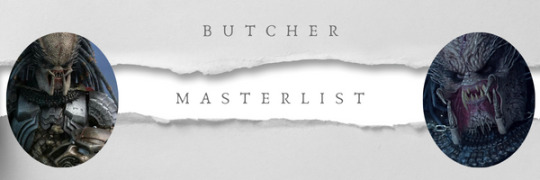
> I do not own any of the slashers/fandoms that I write for (except my Yautja oc's)
> Works that do not feature a gender neutral reader will be labeled
> Order of works is from oldest to newest

Get To Know Butcher
Butcher's Character Profile
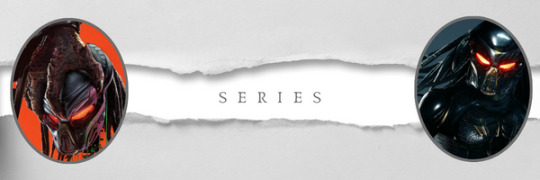
The Air That You Breathe Masterlist | Female Reader
When you first heard that the Captain and crew of the spaceship designated as the Titan had been picked by the higher-ups of the Deep Space Exploration Department (DSED is what most of the employees on the department’s payroll shortened the mouthful of a name to) for an experimental alliance with the beings known to humans as Predators, to say you were surprised would've been an understatement.

#predator#yautja#yautja oc#butcher#butcher x reader#yautja x reader#predator x reader#slasher x reader#slashers x reader
67 notes
·
View notes
Text
* RAD stands for Reactive Attachment Disorder, and DSED stands for Disinhibited Social Engagement Disorder
#psych disability polls#polls#ptsd#psychiatric disability#mental illness#neurodivergent#disability#do you have? poll#trauma-stress related disorders
3 notes
·
View notes
Text
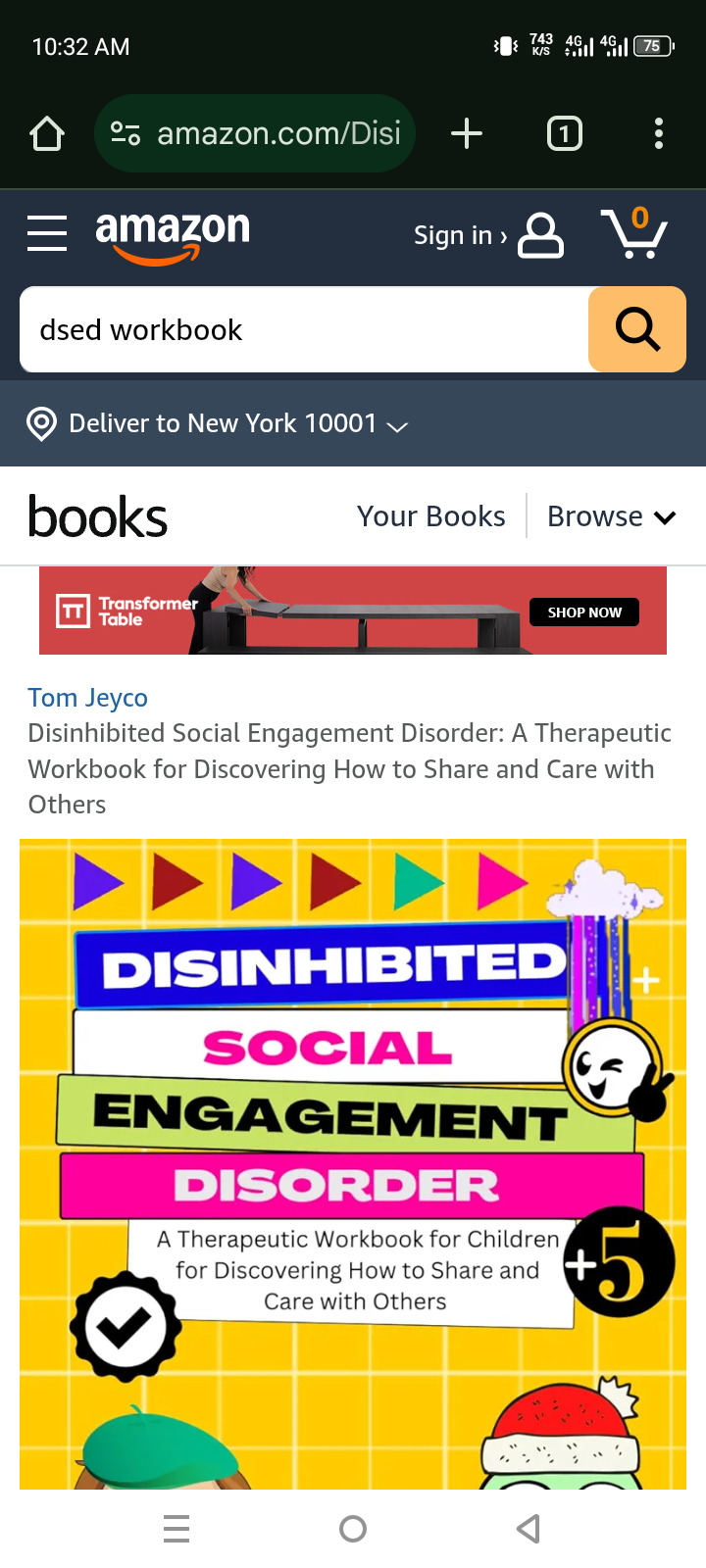
A Superbe Must Have Tool for DSED
1 note
·
View note
Text
Red Flag Reblog Game (?) but also a rant lol.
in honour of 'cutting off' a friend I didn't like (not really cutting off but more like. being honest about how I feel and both of us mutually deciding to not be as close as before as a result),
let me make a list of my red flags.
Because this is the second time I've cut off a friend like this 😭
Okay here we go...
🚩 Gets drained easily. High need of alone time.
🚩 Seen zones and late replies. Does not like people who can't understand my seen zones and late replies even after I've explained to them this habit before hand.
🚩 Deletes messages. I delete messages and then send a new message when I feel like the OG message could have been better phrased. I delete messages randomly sometimes for other reasons too.
🚩 Does not like clingy people who need to talk to me or be with me 24/7. This friend I 'cut off' (ughh cut off isn't rlly the right word. maybe, 'demoted friendship'? IDK 😭. Yeah lets just call it DS).
This friend I DSed once followed me w the intentions of dropping me to my driver. I told her, "I feel like being alone right now."
She said "No." and continued following me so I ended up talking to her. It was a good convo but I didn't like that she didn't take me seriously.
Next day, she tried to follow me again but I said "No I'm serious" sternly and started walking fast away from her
🚩 Acts light hearted during confrontations. When I confront someone abt something they did that bothers me, I say it in a light tone as to not 'hurt' them too much. This leads to them sometimes not taking me seriously.
🚩 Good at pretending that everything's fine. In 2 of my friendships, I have ignored their grieviances against me until the point it piled up, I had harbored too much hidden dislike against them and the next time I confronted them abt it, it was when I was already cutting them off.
Both friendships were shocked and did not expect that I had harbored things against them
🚩 Sensitive. (not really a red flag but you know, the thing w my friend I just DSed - - she said she just had satirical humour. She told me (not actual words) , 'I told you many times not to take my words at face value. If you haven't learned that, then clearly you aren't learning.'
In truth, I did not find her 'humour' funny and I found the things she said to me while we were still friends extremely discouraging 😭
🚩 Does not say everything that's on my mind at times.
🚩 Not pushy. In some situations - you NEED to be pushy. I am bad at being pushy but every day is progress ig
🚩 Might be socially awkward <<sometimes>>
🚩 can be rough w friends sometimes. <<sometimes>> (never with ill intentions though!! I don't do it to hurt them, it's just my hands are kind of heavy ig 😭)
🚩 Not confident in self.
🚩 Does not talk much about myself.
🚩 procrastinator
🚩 Dense. Dense. Dense. Dense. Do not give me 'hints' about how you feel. I might not interpret them properly.
🚩 People get attached to me because I listen to them. In fact, I LIKE listening to them. If they're my friend, I comfort them and am there for them.
It's when they start hurting me that I start hating them.
As mentioned above, I have a tendency to tolerate A LOT before deciding I don't like them as my friend.
Since I tolerate a lot, and act normal,
They usually get caught off guard when I tell them my feelings.
By the time I explain that I dislike them and/or want to 'take a break' or 'cut them off' they get shocked and sad
because they've been sharing intimate things to me and now they're about to lose me.
A lot of times I'm the 'listener' friend or 'the therapist' friend.
If I had to put it in words, sometimes I'm a machine that absorbs the rants and troubles of other people and gives them comfort. I use the word 'machine' because to SOME people (some not all) - I feel like a tool that they use when they need to express their emotions. Just a tool. Nothing more. They don't treat me well.
When I dislike the person, that machine runs out of battery and suddenly dies. But while it's still alive, this machine may not give a sign that it's running out of battery.
So the person continues hurting it and using it. And it suddenly dies on the person.
So the person is left feeling sad, confused, angry, and maybe regretful..but they probably understand. because the machine gives them an explanation.
If they don't understand, not my problem 😭
Yeah I think that's all my red flags. IDK.
Another thing
I guess it would be interesting and fun to see other people reblog this with their own red flags. So if u want to, feel free. feel free to rant ur experiences as well ig.
#random#I prob have more red flags but if i realize them ig ill just edit this post#But regarding those two friendships#I actually don't regret them#I feel glad im free of them#I deserve better 🤭🤭#First friendship was definitely toxic. NO NO NOOO INTENTIONS of going back to that person#Second friendship was more sad#Cause she explained that i just didnt get her humor#and she was a green flag plenty of times#but ehhhhhh#as i think abt it i actually dont regret losing her either#as sad as it is i didnt feel comfortable around her and she discouraged me lots of times. We also didnt click a lot.#if she takes time to reflect on the things i told her she'll understand why i dont like her#friendship#reblog game kinda (only if ppl reblog this)#red flags in friendship#If uve noticed a red flag in me that wasn't mentioned - feel free to send me an ask ig#can't guarantee that ill answer it haha but yeah
5 notes
·
View notes
Photo

There comes a point in everyone’s life when we pause to reflect—on our choices, our patterns, and the way we respond to those closest to us. Perhaps after a heated exchange with a loved one, a wave of anxiety rises, prompting a deeper question: Why do I react this way? Is it unresolved trauma, a personality flaw, or something else entirely? More often than not, the roots reach farther back than we realize. Beneath the surface emotions lie the imprints of our earliest relationships—specifically, the bonds we formed with our caregivers in childhood. These early emotional connections quietly shape how we love, how we cope, and how we see ourselves moving through the world.When those early emotional bonds are unstable, absent, or marked by trauma, they can leave behind invisible wounds that quietly shape our adult lives. This is where attachment disorders enter the conversation. Although often discussed in the context of childhood, the ripple effects of disrupted attachment can extend well into adulthood, impacting emotional regulation, mental health, and the ability to form or sustain close relationships. Understanding reactive attachment disorder in adults isn’t about labeling complex behavior; rather, it’s about uncovering the unseen forces that influence how we connect, cope, and communicate.What is reactive attachment disorder in adults? Photo: Polina Shirokova/UnsplashAttachment is the deep emotional bond that forms between a child and their caregiver, typically within the first few years of life. This connection offers a foundation of security, helping children feel safe, understood, and valued. However, when this bond is disrupted—whether through neglect, abuse, frequent caregiver changes, or emotional unavailability—it can lead to lasting attachment-related challenges.In childhood, these disruptions may develop into diagnosable conditions such as:Reactive Attachment Disorder (RAD): Marked by emotional withdrawal, resistance to comfort, and difficulty forming meaningful relationships.Disinhibited Social Engagement Disorder (DSED): Characterized by overly familiar behavior with strangers and a lack of appropriate social boundaries.Although these disorders are typically identified in children, the emotional consequences don’t simply disappear with age. In fact, many adults unknowingly carry the weight of early attachment wounds into their present lives. These wounds often present as insecure attachment styles—anxious, avoidant, or disorganized—which shape how individuals behave in relationships, regulate emotions, and perceive themselves and the world around them.See how reactive attachment disorder manifests in adults…Moreover, attachment-related difficulties rarely stay confined to just one area of life. Their impact is widespread, often influencing everything from romantic dynamics to workplace interactions. Let’s take a closer look at how reactive attachment disorder in adults can manifest:#1. Interpersonal RelationshipsAdults with attachment wounds may struggle to build or maintain stable relationships. They might crave closeness yet push people away, fear abandonment while clinging too tightly, or avoid intimacy altogether. These conflicting patterns often lead to toxic relationship cycles, whether in romance, family, or friendship.#2. Emotional RegulationAnother hallmark of adult attachment issues is difficulty managing emotions. Minor setbacks can feel overwhelming, triggering intense or unpredictable reactions. This emotional volatility often brings on shame, guilt, or a persistent sense of isolation.#3. Self-PerceptionAn insecure attachment style can distort one’s self-image. Adults may wrestle with low self-worth, impostor syndrome, or chronic self-doubt. There’s often an internal voice questioning whether they are lovable, capable, or deserving of care.#4. Communication and ConflictAttachment issues can also complicate communication. Some adults may misread social cues or struggle to express their needs clearly. In conflict, they might either avoid confrontation entirely or respond with defensiveness and blame, both of which hinder resolution and deepen relational tension.#5. Parenting and CaregivingUnfortunately, without self-awareness or intervention, attachment wounds can carry into the next generation. Adults may find themselves parenting in extremes—overly controlling, emotionally detached, or inconsistent—unintentionally recreating the same unhealthy patterns they experienced as children.#6. Mental Health ImpactsFinally, it’s important to note that attachment disorders in adults often coexist with other mental health conditions like anxiety, depression, borderline personality traits, and PTSD. Unresolved trauma continues to activate stress responses and undermine emotional stability.Check out helpful strategies to help foster healthier emotional patterns…Photo: Marea Wellness/UnsplashHealing from these kinds of wounds is not only possible—it can be profoundly transformative. While it’s often said that time heals all wounds, the truth is: it’s what you do with that time that makes the difference. Growth begins the moment you choose to understand yourself and take intentional steps toward change. Here are some meaningful strategies to help manage attachment disorders and foster healthier emotional patterns:#1. Seek TherapyWorking with a qualified therapist—especially one trained in trauma or attachment theory—can provide a safe, structured environment to unpack early wounds and reshape relational habits. Therapeutic approaches like Attachment-Based Therapy, Internal Family Systems (IFS), Trauma-Focused Cognitive Behavioral Therapy (TF-CBT), and EMDR have all shown powerful results in helping individuals heal.#2. Know ThyselfSelf-awareness is the cornerstone of change. Begin by identifying your attachment style and paying attention to emotional triggers. Practices like journaling, mindfulness, and open, reflective conversations can reveal unconscious patterns that may be sabotaging your relationships.#3. Build a Foolproof Support NetworkHealing doesn’t happen in isolation. Surround yourself with emotionally mature, supportive people who can offer consistency, empathy, and understanding. These relationships can act as “corrective emotional experiences” that help retrain your attachment system.#4. Learn Emotional RegulationAttachment wounds often come with intense emotional responses. Grounding techniques, deep breathing, somatic therapy, or even movement-based practices like yoga can help regulate your nervous system. Emotional stability creates space to respond, rather than react.#5. Set Healthy BoundariesBoundaries aren’t walls—they’re bridges to healthier, more respectful connections. For adults dealing with reactive attachment disorder, clear boundaries can prevent emotional burnout, reduce miscommunication, and foster a sense of trust and safety in relationships.#6. Relearn How to Care for YourselfGive yourself the kind of care you may not have received as a child. This might look like affirming your worth, honoring your needs, or simply being gentle with yourself during tough moments. Empower yourself through books, podcasts, and resources that deepen your understanding of attachment and trauma.ConclusionAttachment disorders in adults are not a life sentence. They are the lingering echoes of early pain, but those echoes can fade. With time, self-awareness, and support, healing becomes more than possible—it becomes inevitable.You are not defined by your past. You are not broken. You are becoming—someone more aware, more empowered, and more capable of building safe, stable, and fulfilling connections. This is the brave journey toward emotional freedom. And it starts with the belief that you are worthy of love, just as you are.Featured image: ilyaliren/iStockMedical DisclaimerAll content found on the StyleRave.com website, including text, images, audio, video, and other formats, is created for informational purposes only. The content is not intended to be a substitute for professional medical advice, diagnosis, or treatment. If you think you may have a medical emergency, please call your doctor, go to the nearest hospital, or call 911 immediately, depending on your condition.For the latest in fashion, lifestyle, and culture, follow us on Instagram @StyleRave_—Read also!function(f,b,e,v,n,t,s) if(f.fbq)return;n=f.fbq=function()n.callMethod? n.callMethod.apply(n,arguments):n.queue.push(arguments); if(!f._fbq)f._fbq=n;n.push=n;n.loaded=!0;n.version='2.0'; n.queue=[];t=b.createElement(e);t.async=!0; t.src=v;s=b.getElementsByTagName(e)[0]; s.parentNode.insertBefore(t,s)(window, document,'script', ' fbq('init', '496558104568102'); fbq('track', 'PageView');!function(f,b,e,v,n,t,s)if(f.fbq)return;n=f.fbq=function()n.callMethod? n.callMethod.apply(n,arguments):n.queue.push(arguments);if(!f._fbq)f._fbq=n; n.push=n;n.loaded=!0;n.version='2.0';n.queue=[];t=b.createElement(e);t.async=!0; t.src=v;s=b.getElementsByTagName(e)[0];s.parentNode.insertBefore(t,s)(window, document,'script',' fbq('init', '1453079628754066'); fbq('track', "PageView"); Source link
1 note
·
View note
Photo
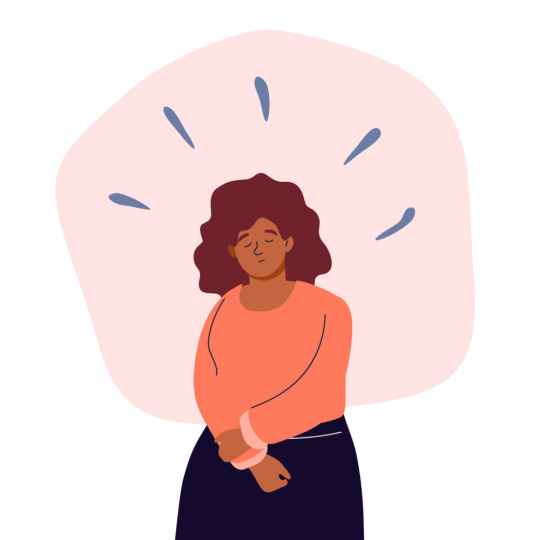
There comes a point in everyone’s life when we pause to reflect—on our choices, our patterns, and the way we respond to those closest to us. Perhaps after a heated exchange with a loved one, a wave of anxiety rises, prompting a deeper question: Why do I react this way? Is it unresolved trauma, a personality flaw, or something else entirely? More often than not, the roots reach farther back than we realize. Beneath the surface emotions lie the imprints of our earliest relationships—specifically, the bonds we formed with our caregivers in childhood. These early emotional connections quietly shape how we love, how we cope, and how we see ourselves moving through the world.When those early emotional bonds are unstable, absent, or marked by trauma, they can leave behind invisible wounds that quietly shape our adult lives. This is where attachment disorders enter the conversation. Although often discussed in the context of childhood, the ripple effects of disrupted attachment can extend well into adulthood, impacting emotional regulation, mental health, and the ability to form or sustain close relationships. Understanding reactive attachment disorder in adults isn’t about labeling complex behavior; rather, it’s about uncovering the unseen forces that influence how we connect, cope, and communicate.What is reactive attachment disorder in adults? Photo: Polina Shirokova/UnsplashAttachment is the deep emotional bond that forms between a child and their caregiver, typically within the first few years of life. This connection offers a foundation of security, helping children feel safe, understood, and valued. However, when this bond is disrupted—whether through neglect, abuse, frequent caregiver changes, or emotional unavailability—it can lead to lasting attachment-related challenges.In childhood, these disruptions may develop into diagnosable conditions such as:Reactive Attachment Disorder (RAD): Marked by emotional withdrawal, resistance to comfort, and difficulty forming meaningful relationships.Disinhibited Social Engagement Disorder (DSED): Characterized by overly familiar behavior with strangers and a lack of appropriate social boundaries.Although these disorders are typically identified in children, the emotional consequences don’t simply disappear with age. In fact, many adults unknowingly carry the weight of early attachment wounds into their present lives. These wounds often present as insecure attachment styles—anxious, avoidant, or disorganized—which shape how individuals behave in relationships, regulate emotions, and perceive themselves and the world around them.See how reactive attachment disorder manifests in adults…Moreover, attachment-related difficulties rarely stay confined to just one area of life. Their impact is widespread, often influencing everything from romantic dynamics to workplace interactions. Let’s take a closer look at how reactive attachment disorder in adults can manifest:#1. Interpersonal RelationshipsAdults with attachment wounds may struggle to build or maintain stable relationships. They might crave closeness yet push people away, fear abandonment while clinging too tightly, or avoid intimacy altogether. These conflicting patterns often lead to toxic relationship cycles, whether in romance, family, or friendship.#2. Emotional RegulationAnother hallmark of adult attachment issues is difficulty managing emotions. Minor setbacks can feel overwhelming, triggering intense or unpredictable reactions. This emotional volatility often brings on shame, guilt, or a persistent sense of isolation.#3. Self-PerceptionAn insecure attachment style can distort one’s self-image. Adults may wrestle with low self-worth, impostor syndrome, or chronic self-doubt. There’s often an internal voice questioning whether they are lovable, capable, or deserving of care.#4. Communication and ConflictAttachment issues can also complicate communication. Some adults may misread social cues or struggle to express their needs clearly. In conflict, they might either avoid confrontation entirely or respond with defensiveness and blame, both of which hinder resolution and deepen relational tension.#5. Parenting and CaregivingUnfortunately, without self-awareness or intervention, attachment wounds can carry into the next generation. Adults may find themselves parenting in extremes—overly controlling, emotionally detached, or inconsistent—unintentionally recreating the same unhealthy patterns they experienced as children.#6. Mental Health ImpactsFinally, it’s important to note that attachment disorders in adults often coexist with other mental health conditions like anxiety, depression, borderline personality traits, and PTSD. Unresolved trauma continues to activate stress responses and undermine emotional stability.Check out helpful strategies to help foster healthier emotional patterns…Photo: Marea Wellness/UnsplashHealing from these kinds of wounds is not only possible—it can be profoundly transformative. While it’s often said that time heals all wounds, the truth is: it’s what you do with that time that makes the difference. Growth begins the moment you choose to understand yourself and take intentional steps toward change. Here are some meaningful strategies to help manage attachment disorders and foster healthier emotional patterns:#1. Seek TherapyWorking with a qualified therapist—especially one trained in trauma or attachment theory—can provide a safe, structured environment to unpack early wounds and reshape relational habits. Therapeutic approaches like Attachment-Based Therapy, Internal Family Systems (IFS), Trauma-Focused Cognitive Behavioral Therapy (TF-CBT), and EMDR have all shown powerful results in helping individuals heal.#2. Know ThyselfSelf-awareness is the cornerstone of change. Begin by identifying your attachment style and paying attention to emotional triggers. Practices like journaling, mindfulness, and open, reflective conversations can reveal unconscious patterns that may be sabotaging your relationships.#3. Build a Foolproof Support NetworkHealing doesn’t happen in isolation. Surround yourself with emotionally mature, supportive people who can offer consistency, empathy, and understanding. These relationships can act as “corrective emotional experiences” that help retrain your attachment system.#4. Learn Emotional RegulationAttachment wounds often come with intense emotional responses. Grounding techniques, deep breathing, somatic therapy, or even movement-based practices like yoga can help regulate your nervous system. Emotional stability creates space to respond, rather than react.#5. Set Healthy BoundariesBoundaries aren’t walls—they’re bridges to healthier, more respectful connections. For adults dealing with reactive attachment disorder, clear boundaries can prevent emotional burnout, reduce miscommunication, and foster a sense of trust and safety in relationships.#6. Relearn How to Care for YourselfGive yourself the kind of care you may not have received as a child. This might look like affirming your worth, honoring your needs, or simply being gentle with yourself during tough moments. Empower yourself through books, podcasts, and resources that deepen your understanding of attachment and trauma.ConclusionAttachment disorders in adults are not a life sentence. They are the lingering echoes of early pain, but those echoes can fade. With time, self-awareness, and support, healing becomes more than possible—it becomes inevitable.You are not defined by your past. You are not broken. You are becoming—someone more aware, more empowered, and more capable of building safe, stable, and fulfilling connections. This is the brave journey toward emotional freedom. And it starts with the belief that you are worthy of love, just as you are.Featured image: ilyaliren/iStockMedical DisclaimerAll content found on the StyleRave.com website, including text, images, audio, video, and other formats, is created for informational purposes only. The content is not intended to be a substitute for professional medical advice, diagnosis, or treatment. If you think you may have a medical emergency, please call your doctor, go to the nearest hospital, or call 911 immediately, depending on your condition.For the latest in fashion, lifestyle, and culture, follow us on Instagram @StyleRave_—Read also!function(f,b,e,v,n,t,s) if(f.fbq)return;n=f.fbq=function()n.callMethod? n.callMethod.apply(n,arguments):n.queue.push(arguments); if(!f._fbq)f._fbq=n;n.push=n;n.loaded=!0;n.version='2.0'; n.queue=[];t=b.createElement(e);t.async=!0; t.src=v;s=b.getElementsByTagName(e)[0]; s.parentNode.insertBefore(t,s)(window, document,'script', ' fbq('init', '496558104568102'); fbq('track', 'PageView');!function(f,b,e,v,n,t,s)if(f.fbq)return;n=f.fbq=function()n.callMethod? n.callMethod.apply(n,arguments):n.queue.push(arguments);if(!f._fbq)f._fbq=n; n.push=n;n.loaded=!0;n.version='2.0';n.queue=[];t=b.createElement(e);t.async=!0; t.src=v;s=b.getElementsByTagName(e)[0];s.parentNode.insertBefore(t,s)(window, document,'script',' fbq('init', '1453079628754066'); fbq('track', "PageView"); Source link
0 notes
Text
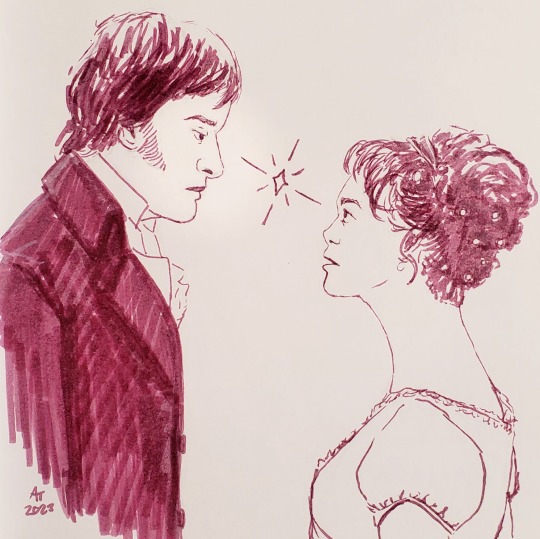
DSED OCTOBER 2023 | Day 9: prejudice
#pride and prejudice#pride & prejudice#p&p 2005#draw something every day#dsed#dsed october 2023#drawing#doodles
34 notes
·
View notes
Text
started crying over miles and his brother. he was 16 and his brother ( murray ) was 14, miles having been diagnosed with dsed would've had trouble really forming close connections so him having a close relationship with his brother would be fairly unexpected but welcomed. he probably barely scraped through school after his brother died, there was recession in his progress with therapy, he easily finds that to be the lowest point in his life and it's such a push factor for the way he treats people now, like he's stuck trying to be everyone's older brother which he doesn't see as much of a problem but he's definitely gotten into a few heated arguments about his behavior ...
#𝐩𝐨𝐬𝐭. ⊱ ━━ 𝗢𝗨𝗧.#𝐡𝐜. ⊱ ━━ 𝗗𝗥. 𝗛𝗔𝗥𝗞𝗘𝗥.#death tw#and then to make it worse he named his cat after his brother#and god forbid anything happens to his poor cat
0 notes
Text
sigh. and yes i found out about the lack of research on how dsed symptoms manifest in adulthood because i was researching it for Spencer Reasons. but now it's personal
1 note
·
View note